Ontario’s Progressive Conservative (PC) government has quietly tweaked its official plan to meet the province’s climate goals, with the new forecast showing several noticeable omissions.
The “Made in Ontario Plan for the Environment,” which was released in 2018, estimated that nearly 15% of total greenhouse gas (GHG) reductions would come from increased electric vehicle adoption. The revised forecast includes no mention of this.
The $400-million Ontario Carbon Trust, which the PCs formerly touted as an investment that would assist the private sector in fostering new cleantech innovations, never materialized – and has also been removed from the document.
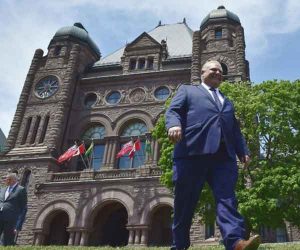
Premier Doug Ford on the lawn of the Ontario legislature on Friday, June 8, 2018. (THE CANADIAN PRESS)
Natural gas conservation has been dramatically scaled back in the new plan, with expected emission reductions going from 2.3 megatonnes (MT) in 2018 to a measly 0.03 MT.
According to the document, “the province remains steadfast in its commitment to meet the 2030 emissions reduction target and is confident in the plan and trajectory to get there.”
Ontario’s current target is a 30% cut in carbon emissions from 1990 levels by 2030 – an unambitious goal that pales in comparison to the federal counterpart, which promises reductions of between 40-45%.
The document also stipulates that Ontario has already achieved “greater reductions of greenhouse gas emissions than any other province or territory in Canada” – a claim that misrepresents the Doug Ford government’s handling of the climate file.
The vast majority of Ontario’s climate progress has been a result of Liberal policy initiatives, namely the elimination of coal-fired electricity. By the time the Progressive Conservatives were elected in 2018, Ontario had already accomplished substantial emission reductions, representing almost two-thirds of the 2030 goal.
The revised forecast still predicts Ontario will hit its target – requiring a reduction of only 12 MT from current levels – but now emphasizes three core pillars as a means of getting there: greater renewable content in gasoline, stricter heavy industry emission standards, and phasing out coal furnaces in the steel industry.
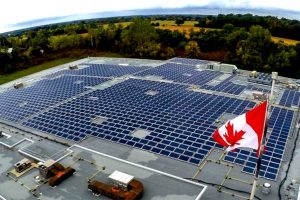
Rooftop Solar Panel Installation of 422 kW for Great Circle Solar in Ontario, Canada (AGT)
Keith Stewart, the senior energy strategist with Greenpeace Canada, says that the majority of Ontario’s emission reductions are being driven by federal regulations or by programs that Ottawa is partially (or entirely) paying for.
“The Ford government is basically coasting on previous actions taken by Ontario governments and current actions being taken by the federal government,” Stewart said in an interview with the CBC.
“Ontario seems to be saying, “We’ll do whatever the federal government either makes us do or pays for, and nothing more.” And that is not nearly good enough in the face of a climate crisis,” Stewart added.
The document outlining Ontario’s new plan to reduce emissions fails to mention climate change, something Steward says is telling.
“This plan is about meeting federal requirements, not addressing the climate crisis because the Ford government doesn’t recognize it as a crisis,” he said.
Further scaling back their emission reduction plan will ultimately harm Ontario’s economic positioning – a cruel irony for a Premier who prides his leadership on being “open for business.”
The global cleantech industry is expected to surpass $2.5 trillion in value in 2022, yet Ontario continues to miss out on much of this investment. Also, and unfortunately, Doug Ford continues to use past environmental progress as an excuse for contemporary policy inertia.




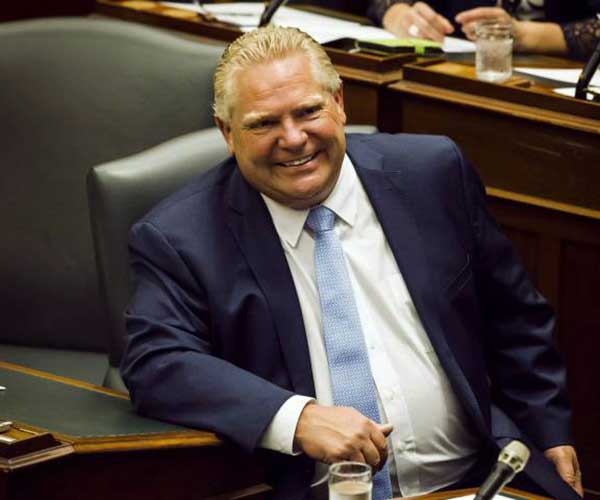

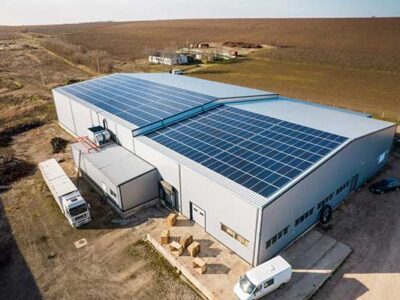

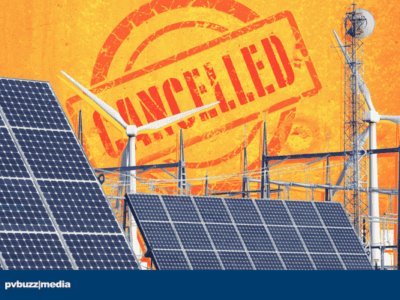

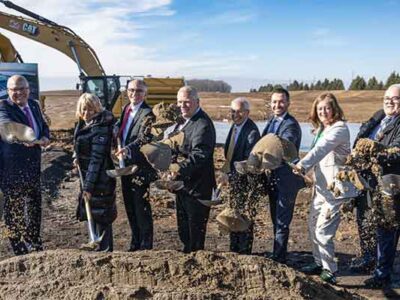


Comments